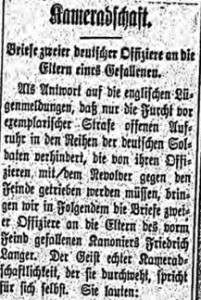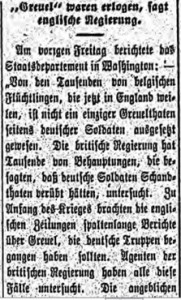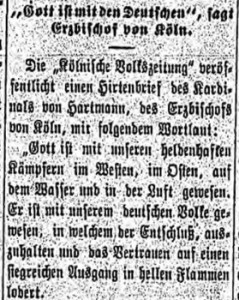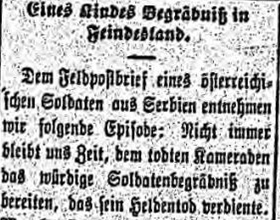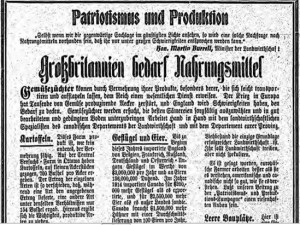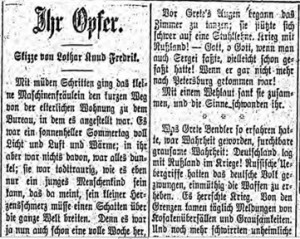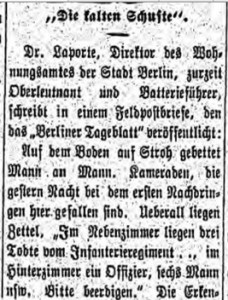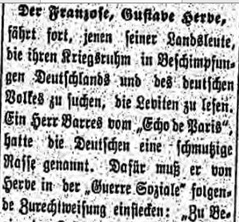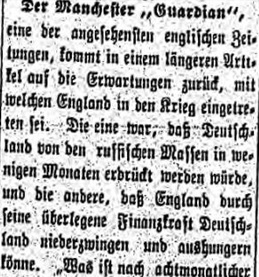A war correspondent from Budapest told the following moving stories from overseas.
A pale Austrian lieutenant came to the dressing station, didn’t look wounded, waited until he stood in front of the doctor and then died immediately, because he was shot right in the heart. A Russian volunteer was carried by two Hungarian soldiers, but one could see that it was too late for him. His last words were: “I was never angry with you, I never hated you. Why have you murdered me?…Oh God, I want to live.” On the battle field lay the wounded and the dead soldiers. Army chaplains went around and blessed the men. With the help of a mirror, a doctor identified the still living wounded and brought them to the dressing station. The coldness relieved the pain of the dying people. The dead were interred and the soldiers gave them all little farewell presents on their graves before they sang a song.
(„Wie Soldaten sterben“, Berliner Journal, 3 February 1915)

